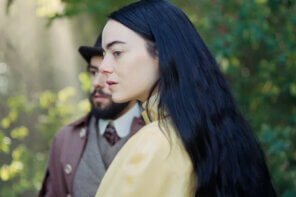What a great year for movies. Will the creative well ever run dry? Somehow, great films continue to come out every year, and 2014 had even more than usual. Now comes the time to honor them.
I’ve always been a fan of the Oscars. I’ve loved the ceremony since I was a kid. This is the moment when everything in film comes together. The people who brought us the highs of the year – the best stories, performances, music, and effects – come together in one room. The audiences who were touched by their work tune in too. And together, we celebrate – not just 2014, but movies as a whole; what it feels like to walk into a theater, take a seat among strangers, and disappear into another world.
Not everyone shares my enthusiasm. “If it won an Oscar, I’m sure I’ll hate it!” cries Joe Public. I understand. There are certainly some best picture winners deserving of that criticism. But more often than not, the Academy gets it right. There may be films and performances left out every year, but the films that are nominated are usually worthy of their acclaim.
There is one criticism I’ll levy at the Oscars: the best of each category rarely wins. The Academy Awards, like everything else these days, are a political contest. The campaigning machine starts early, and the loudest voice scores the votes. In light of that, I don’t waste my time predicting who will win. Instead, I like to talk about who should win.
The following are my picks for the Oscars in every major category. They may not take home the gold Sunday night, but that’s okay. This is the one time where it truly is an honor just to be nominated. The Oscars aren’t about winning or losing; they’re a celebration of cinema. So, leave your scorecards at home, cue the lights, and let the show begin!
Best Picture
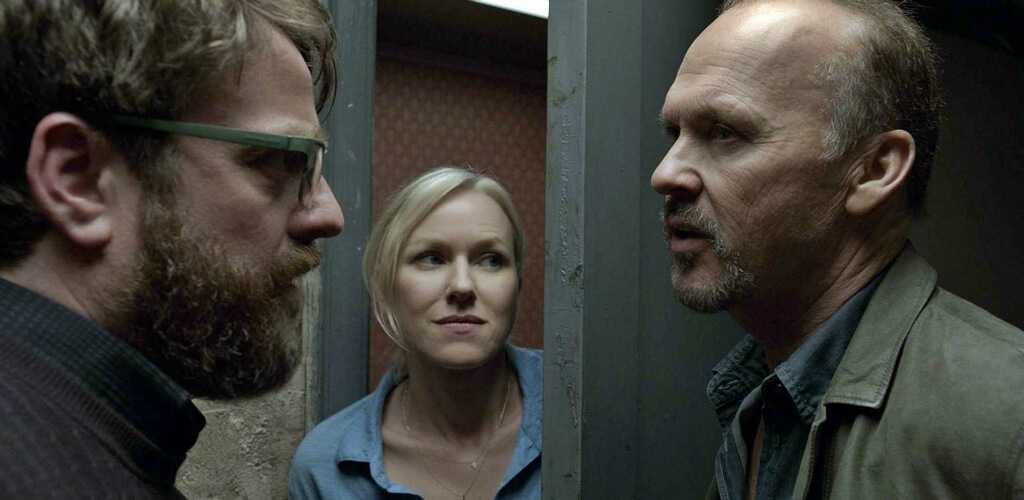
American Sniper
The Imitation Game
Birdman
Selma
Boyhood
The Theory of Everything
The Grand Budapest Hotel
Whiplash
I still remember when this category was a prestigious group of five films. Now, the Academy has expanded the potential to ten. The goal was to let in more unconventional fare, but that clearly hasn’t happened. Where is Interstellar and Guardians of the Galaxy? Those are the kinds of films this new format was supposed to benefit, and they would have rounded out the last two spots perfectly. Instead, we’re left with eight.
There are two films on the list that don’t deserve to be here. American Sniper is a masterpiece for two full acts, and then falls apart in the third. The Theory of Everything has the best performance of the year from Eddie Redmayne, but the film itself feels hollow. They’re both good movies to be sure, but best picture nominees need to be great.
Boyhood deserves to be on this list for sheer ambition. In fact, the film’s power derives almost entirely from its form – filmed over 12 years with the same actor growing from a boy to a man before our eyes. The old saying “The whole is greater than the sum of its parts” has rarely been more apt. There are hardly any memorable scenes, performance moments, or lines in Boyhood, yet somehow when you stand back and look at the whole, it’s powerful. Does that make it a great film? I’m still wrestling with that, but for now I’m fine with it being a contender.
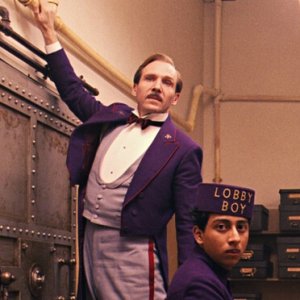 The Grand Budapest Hotel is Wes Anderson at the top of his game. Everything he’s done so far in his career comes together once and for all in a glorious stylistic achievement. The cinematography, set design, costumes, and pacing are simply exquisite. Yet, perhaps because the surface of the film is so honed to perfection, Wes Anderson’s primary flaw becomes even more apparent – there’s just no soul to this movie. Mentally I was in awe, but my heart was never pricked. I saw the emotion, but before I could ever feel it, we were on to the next perfect set piece. I can’t give the best picture honor to an empty shell, no matter how brightly it shines.
The Grand Budapest Hotel is Wes Anderson at the top of his game. Everything he’s done so far in his career comes together once and for all in a glorious stylistic achievement. The cinematography, set design, costumes, and pacing are simply exquisite. Yet, perhaps because the surface of the film is so honed to perfection, Wes Anderson’s primary flaw becomes even more apparent – there’s just no soul to this movie. Mentally I was in awe, but my heart was never pricked. I saw the emotion, but before I could ever feel it, we were on to the next perfect set piece. I can’t give the best picture honor to an empty shell, no matter how brightly it shines.
Selma and The Imitation Game are two very different films, but they contain the same blessing and curse. They’re both historical films about extraordinary events, with flawless craftsmanship and performances, but they’re also conventional. They stick to their subject and nail their point home, but there’s nothing here stylistically that hasn’t been done before. These are period dramas through and through – expertly made – but similar in tone to the other period dramas that find their way to cinemas this time of year. A best picture winner needs something different, something rare, something that reaches through the screen and grabs you by the throat.
That rare something is what Whiplash and Birdman have in spades. For pure primal impact, Whiplash was my favorite theater moment of the year. I still remember dancing around the parking lot afterward, my head spinning from the experience. Electrifying jazz music combines with larger than life performances to ask one tantalizing question: what does it take to be the best at something? This is a film that grabs you from the start and doesn’t let go, right down to the perfect final shot. I’m still debating to this moment whether it’s the best film of the year, but, for now, I’m giving that award to Birdman.
Birdman is very similar to Whiplash in many respects. Both have killer soundtracks. Both have outstanding performances. Both are alive from beginning to end. But Whiplash seems smaller than Birdman when compared side by side. There’s an epic feel to Birdman that hits home with even more force. Director Alejandro Inarritu films the movie in a series of long, unbroken, tracking shots. This form creates a perfect synthesis of theater and film; highlighting the beauty of both in the process. The acting is raw. The mood is entrancing. Birdman is a film for the artist inside all of us. It hits home to anyone who’s ever tried to create something truly original, and all of the pain, joy, insecurity, misery, and ecstasy that come along for the ride.
Birdman is my pick for best film of the year.
Best Director

Alejandro Iñárritu – Birdman
Richard Linklater – Boyhood
Bennett Miller – Foxcatcher
Wes Anderson – The Grand Budapest Hotel
Morten Tyldum – The Imitation Game
Bennett Miller and Morten Tyldum are outnumbered in this category. Foxcatcher was a great film, but it could have been chiseled down to a leaner, tighter, punch in the gut, experience. The Imitation Game was extremely well made, but the third act felt choppy.
I would be fine with either Richard Linklater or Wes Anderson winning. Richard Linklater deserves the honor for sheer determination. 12 years is a long time to stick with a concept, and he pulls a magic trick out of his hat by making the footage work as a cohesive whole in Boyhood. Wes Anderson probably deserves the statue the most though. There’s just no getting around the technical perfection he pulled off with The Grand Budapest Hotel.
However, I agree with the conventional wisdom that ties the best picture and best director categories together. How can the best picture of the year not also have been the best directorial achievement of the year? The director is the king of the film set. He’s there from concept to distribution. He’s behind every performance, script change, and shot. Everything a film is belongs to the director. Therefore, by default, my vote goes to Alejandro Iñárritu for Birdman.
Best Actor

Steve Carell – Foxcatcher
Michael Keaton – Birdman
Bradley Cooper – American Sniper
Eddie Redmayne – The Theory of Everything
Benedict Cumberbatch – The Imitation Game
I can’t remember the last time the best actor category was this packed with standout performances. Bradley Cooper is at the bottom of the pile here, but that in and of itself is saying something, because Cooper was fantastic as Navy SEAL Chris Kyle in American Sniper. He gained 40 pounds for the role and it shows. He’s a meat head with a tough shell, but we see it nearly broken by the ravages of war.
Michael Keaton gets the honor of leading the charge in the best film of the year in Birdman, but I wouldn’t call his role a transformation. He’s compelling and vulnerable, giving us everything we need to see from his character, but a best actor winner needs to disappear completely. At the end of the day, Riggan Thompson is just Michael Keaton doing the best Michael Keaton impression we’ve ever seen.
Benedict Cumberbatch took me by surprise with his performance as the math whiz Alan Turing in The Imitation Game. I thought I knew what to expect from the trailer, but he managed to bring more power to the role than I anticipated. We form an instant impression of Alan right off the bat from the voiceover. That’s how locked in Cumberbatch is in the film – his accent and intonations tell us everything we need to know.
If it’s transformation you’re looking for, look no further than Steve Carell as aristocrat John du Pont. Du Pont is about as far removed from Michael Scott on The Office as I could ever have imagined. This is a dark, slimy role for Carell and he nails it. Director Bennett Miller films Foxcatcher primarily in close-ups. We see Du Pont up close and personal throughout the film, and Carell dares us to look away. The strange nose is the first difference we notice about Carell, but it’s the dark glint in his eyes that we’ve never seen before.
Unfortunately, Carell is forced to share this category with another transformation artist: Eddie Redmayne. I say unfortunately, because if Redmayne doesn’t get the best actor trophy this year, the Academy owes him an apology. Redmayne gives the performance of a lifetime as Professor Stephen Hawking in The Theory of Everything, and he’s only 33. I can’t imagine the physical toll Redmayne endured as he was forced to contort his body every day for months on end. The pain paid off – Redmayne is Steven Hawking. The result is astonishing. Enjoy that Oscar, Eddie. You earned it.
Best Actress
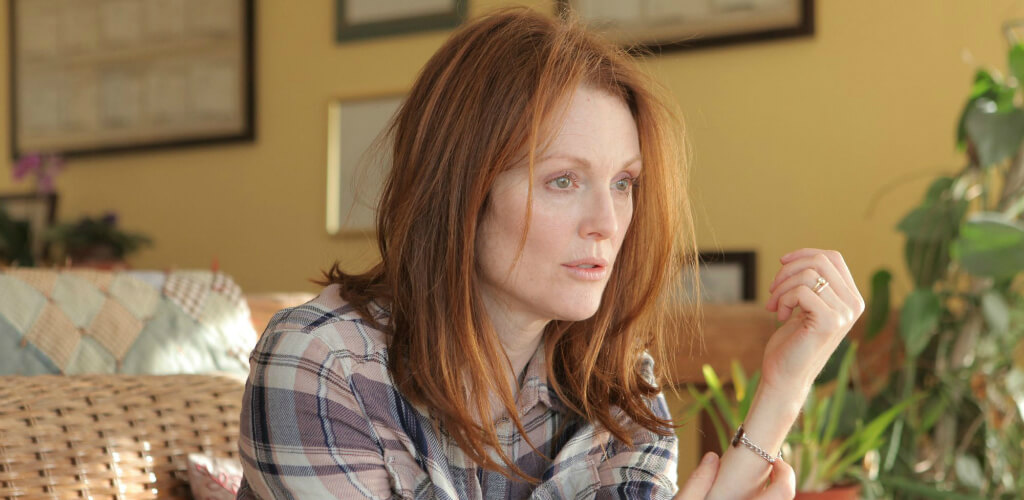
Marion Cotillard – Two Days, One Night
Rosamund Pike – Gone Girl
Felicity Jones – The Theory of Everything
Reese Witherspoon – Wild
Julianne Moore – Still Alice
The inclusion of Marion Cotillard in this category was a huge surprise. Did anyone actually see Two Days, One Night? I sure didn’t. I think it opened in three theaters nationwide. If it ever hits DVD, I’ll give it a watch. Until then, the jury’s out.
Felicity Jones and Rosamund Pike were both great in The Theory of Everything and Gone Girl respectively. I liked the strength the women brought to their characters, turning gender roles on their head. Women are too often forced to play the sexpot or the crying basket case. Here were two characters completely in control of their emotions, yet still vulnerable and raw. However, I wonder if either of these performances will truly stand the test of time.
In any other year, Reese Witherspoon would have run away with this award for Wild. This is the best I’ve ever seen her. What a delight it must have been to have a complex character to sink her teeth into. I loved getting to know Witherspoon’s Cheryl Strayed, whose self-made last name says it all. As Cheryl runs from her past through hundreds of miles of wilderness, we see everything – her strengths, insecurities, brokenness, and fears. Witherspoon bears Cheryl’s heart wide open for all to see, and, in so doing, allows us to do the same.
At least Reese Witherspoon will have Steve Carell’s shoulder to cry on when she loses to Julianne Moore. There’s just no getting around it, Moore is the standout here. Playing a woman diagnosed with Alzheimers, Moore shows us what it’s like to lose everything. In the beginning of Still Alice, we see an intellectual woman in love with language. By the end, we see someone who can barely speak. It’s a haunting juxtaposition – one that will stick with me for some time. Moore makes Alzheimer’s painfully real. My heart still aches for Alice when I think about her. That’s great acting.
Best Supporting Actor
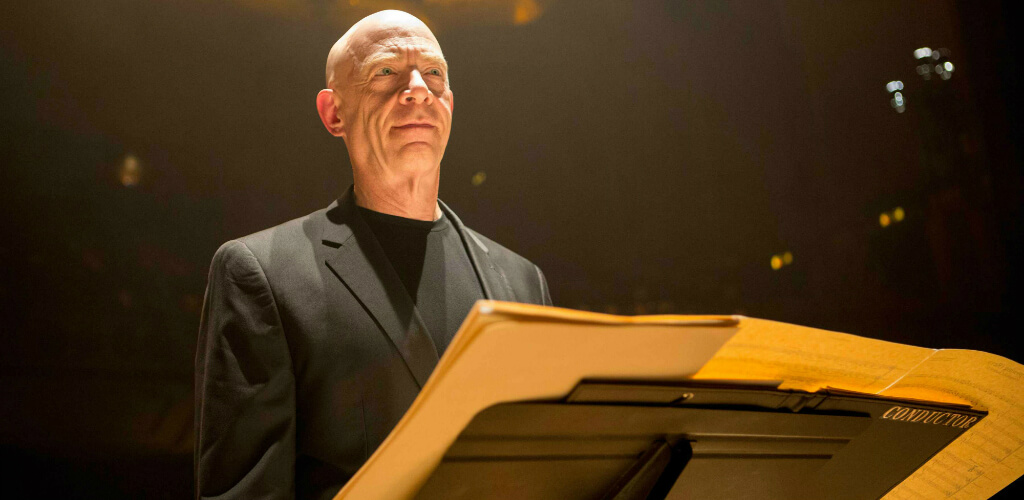
Robert Duvall – The Judge
Mark Ruffalo – Foxcatcher
Ethan Hawke – Boyhood
J.K. Simmons – Whiplash
Edward Norton – Birdman
Here’s another category filled with contenders that puts other years to shame. Robert Duvall gives a fascinating performance that only he could pull off as the titular judge of The Judge. Seeing him spar off against Robert Downey Jr. for two hours was electrifying. Duvall brought both gruffness and sadness to his character, proving that one feeds off the other. The scene of him in the bathroom, soiled and vulnerable in the arms of his estranged son, was unforgettable.
Edward Norton is a magician, and not just because he played one once. Somehow he manages to glue us to his characters every time, while all the while not doing anything special. Here he is up to his old tricks again. I remember loving every second of Norton’s character in Birdman. Yet, I can’t for the life of me remember what was unique about it. Maybe that’s the trick – we don’t love his characters, we just love Edward Norton. He brings the same charisma, humor, and emotion to every role and we eat it up every time. That may not be the definition of an Oscar winner, but I’ll always be up for another helping.
Ethan Hawke and Mark Ruffalo put the “supporting” in “supporting actor” in their roles as Dad and David Schultz respectively. A great supporting actor props up a movie without ever becoming the centerpiece. Boyhood and Foxcatcher would not be best picture nominees without these two performances. That’s a fact. And yet, they’re not the first thing you remember when you think of the films. There’s a subtlety to supporting roles. These characters exist to bolster the leads and themes, but they also quietly become the film’s heart and soul.
There’s nothing subtle about J.K. Simmons in Whiplash, but that’s exactly why we can’t look away. Simmons’ character Fletcher is like the shark in Jaws at the beginning of the film. We open from his perspective as he silently eyes up a student practicing on a drum kit at the end of a hallway. The camera slinks toward the boy. We can feel him salivating at the opportunity. Then – he strikes. From there, there’s no turning back. Simmons leaps off the screen in every scene he’s in. He’s both larger than life and perfectly real. The best moment comes when Fletcher explains the method behind his madness. Suddenly this monster starts making sense, and we’re more scared of him than ever. J.K. Simmons has been a lock for this Oscar from the start, and he absolutely deserves it.
Best Supporting Actress
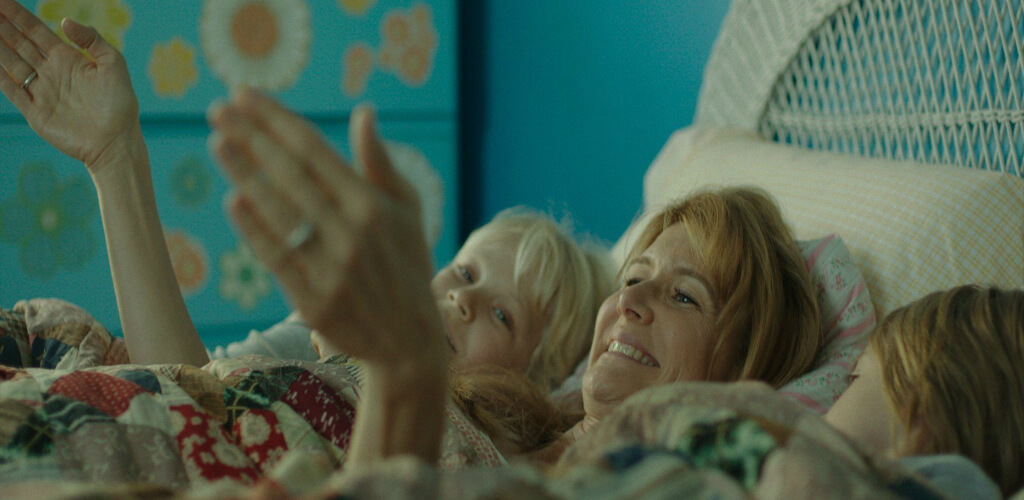
Patricia Arquette – Boyhood
Emma Stone – Birdman
Laura Dern – Wild
Meryl Streep – Into the Woods
Keira Knightley – The Imitation Game
They should just mail an Oscar to Meryl Streep every year and call it a day. Seriously, this is ridiculous. I’ll admit I didn’t see Into the Woods, but I have a hard time believing her turn as “Witch” is worthy of this honor. I’ll publicly eat my words if I’m wrong, but, until then, let’s move on shall we?
Keira Knightly and Emma Stone both give flawless performances in The Imitation Game and Birdman respectively, but they also don’t fit the criteria for truly great supporting performances. Both movies would have worked without them. They don’t generate enough magic to become the foundational elements that supporting performances should be.
I still don’t know what to think about Patricia Arquette in Boyhood. On my first viewing, I found her acting suspect. On the second, I thought she delivered. Arquette, like the film, benefits from the sweeping power of watching her character age over the course of twelve years. But she also brings nuance to her role. Her heartbreak over her son leaving for college is one memorable moment in a movie that doesn’t have many of them.
Laura Dern in Wild is the clear standout this year against decidedly weak competition. As her mother Bobbi, Dern forms the heartbeat of Reese Witherspoon’s character. Witherspoon’s Cheryl Strayed is running from her mom. She’s also running toward her. Their relationship shines a light on everything we come to see about Cheryl. Dern gives Bobbi a magical presence from her first moments on screen. We see the power that Bobbi exerts over her kids, but we also see the pain she’s hiding. Dern turns in a truly beautiful performance. Hopefully, she’ll win her first Oscar for it.
Cinematography
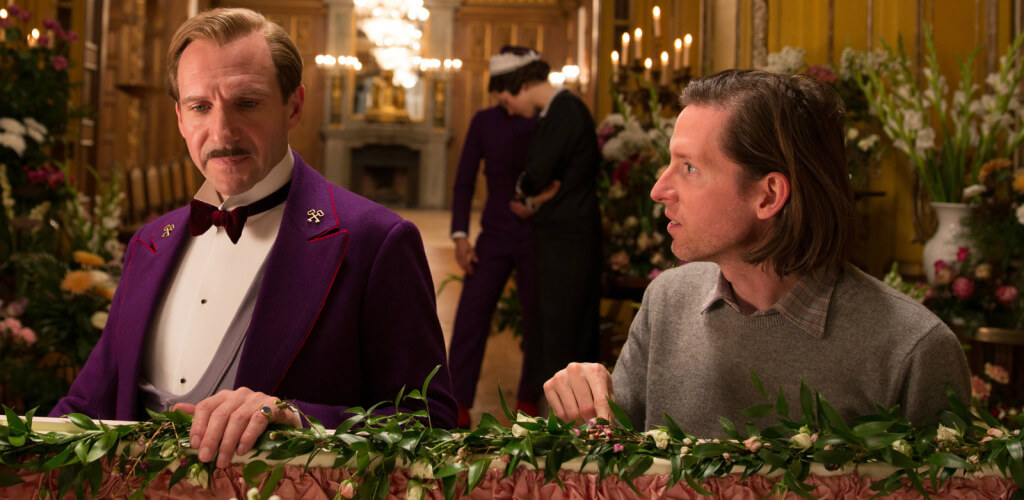
Birdman
The Grand Budapest Hotel
Ida
Mr. Turner
Unbroken
I never had the opportunity to see Ida, Mr. Turner, or Unbroken, so I feel unqualified to judge this category. Birdman had incredible cinematography though, filled to the brim with complex tracking shots and unedited takes. However, my hope is that Wes Anderson and Robert Yeoman will get the credit their due here for The Grand Budapest Hotel. The director and the director of photography work hand in hand on a film set. Any award should rightfully be awarded to both. Anderson sets the tone from a stylistic standpoint, and Yeoman compliments him beautifully. This is a collaborative relationship that has yielded an abundance of technical achievements. They deserve this recognition.
Best Adapted Screenplay
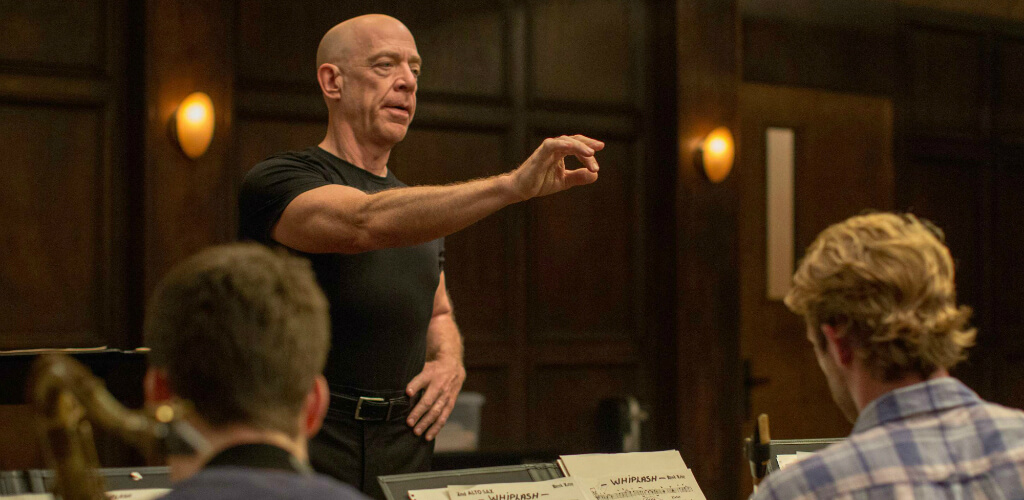
American Sniper
The Imitation Game
Inherent Vice
The Theory of Everything
Whiplash
Looking over this list, only one film stands out for exemplary screenwriting. Whiplash lives and dies by its dialogue. J.K. Simmons is masterful as Fletcher, but he needs clever bile to spew. That’s where screenwriter Damien Chazelle comes in. Chazelle delivers firecracker dialogue for his characters. The lines are lean and precise which meshes perfectly with the film’s mis en scene. This is truly Oscar worthy work.
Best Original Screenplay
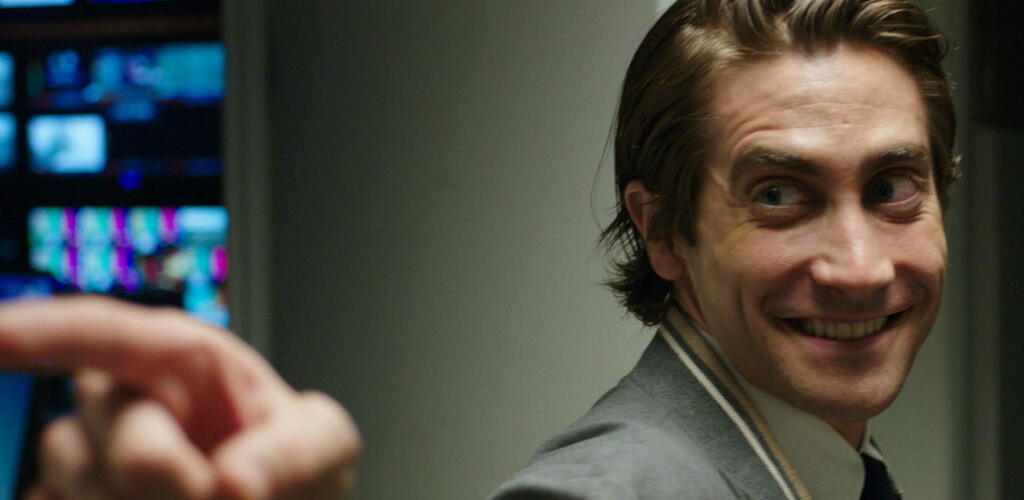
Birdman
Boyhood
Foxcatcher
The Grand Budapest Hotel
Nightcrawler
For sheer ingenuity, this is an outstanding group of scripts. Any one of these screenplays deserves an Oscar, but my pick goes to Nightcrawler. Jake Gyllenhaal is incredible as the anti-hero Louis Bloom, but he’d be nothing without writer/director Dan Gilroy’s dialogue. Bloom controls people with his words. He tells people what they want to hear, and then slips in venom with the honey. For a character that talks this much, great writing is essential. There are a handful of memorable lines. My favorite: “I like to say that if you’re seeing me, you’re having the worst day of your life.” Gilroy deserves the gold.
Join the celebration this Sunday, February 22nd, at 6:00 pm CST!



